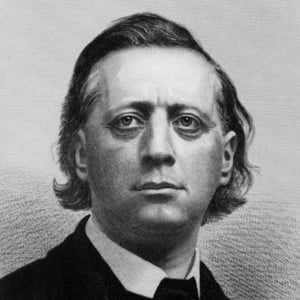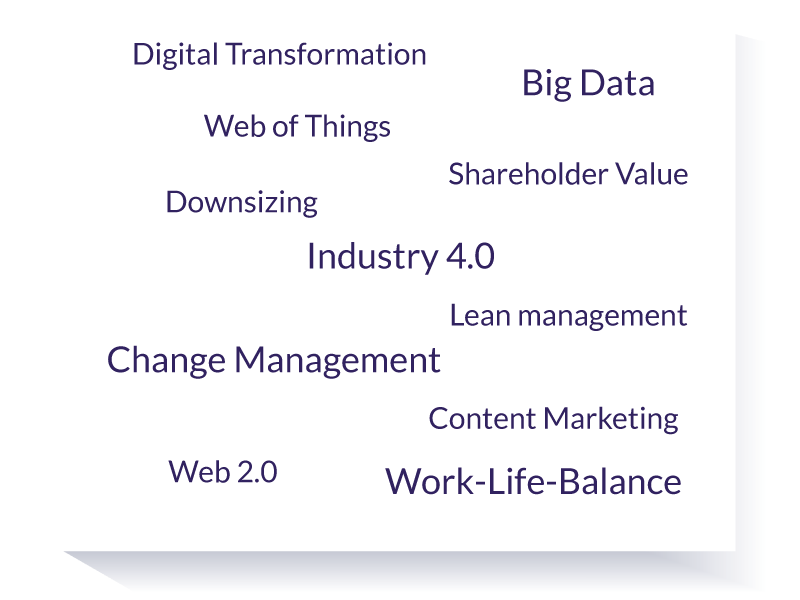In the modern sense of the word, a Thought Leader is someone whose views on a subject are seen as leading and influential. The term as such emerged for the first time at the end of the 19th century when the American clergyman and social reformer Henry Ward Beecher was honored for his accomplishments and contributions to the abolitionist movement.
At Thought Leader Systems, we define a thought leader as an opinion leader and as the leading and sought-after authority in their respective areas of expertise. Thought Leaders are a trusted source of information. They also work by confronting, moving, and inspiring others with innovative ideas. That's not all. A Thought Leader is characterized by setting a good example and actively committing himself to the implementation and realization of his great idea.

Thought leaders do not just talk, they act accordingly. This distinguishes a thought leader from a Youtube influencer, speaker, celebrity, politician, or journalist, for example, if he only reports about things instead of actively shaping or changing them. A thought leader contributes to the fact that others follow him in thinking and above all in acting and reproduce the success of his idea, develop it further or help to advance it. In this respect, the concept of the thought leader can be regarded as the founder of influencer marketing.
Thought Leaders create and lead a group of dedicated and passionate friends, fans, and followers. With the support of their own community, thought leaders are able to multiply and scale their personal contribution to change in business and society with the help of other people - far beyond their own actions.
The commitment of the community members to the common cause strengthens the implementation of the thought leader's concern with the target group of the concern (e.g. the public, institutions, customers).
In this way, the thought leader withdraws from his active role and opens the way for his community, which often pushes his work far beyond the life of the thought leader.

As a preacher, author and public speaker Henry Beecher gained great influence and coined the way people thought of people from different social and educational backgrounds. He advocated the abolishment of slavery and lead by example, buying slaves their freedom and even supporting the armed fight against those who would maintain slavery as an institution.
When the American civil war escalated, he went to Europe, rallying support for the Union in public speeches. After the war, he advocated gender equality and the recognition of Darwin’s theory of evolution – as a man of the church, one might add. Due to his immense popularity, he was called “The Most Famous Man in America” by his biographer.
Through preaching and public speaking, he won the hearts and minds of the people by unusual means: storytelling, humor, and colloquial language – the language of the people.
When the American Civil War broke out, Beecher went on a tour of speakers to Europe and sought support for the Northern States Union. After the civil war, he became a thought leader for the equal rights of women and for the recognition of Darwin's theory of evolution - mind you as a church representative. His biographer called him "The Most Famous Man in America", the most famous man in North America at that time, because of his uncommon popularity.
Thought leaders lead by example and create new, progressive solutions for people. Their ideas are not always uncontroversial and shape the zeitgeist. Thought leaders rely on the power of brand and storytelling. Thought Leaders win the minds and hearts of people with dramatic storytelling and experiences that make people part of a community.
Today strong brands, companies, and personalities use the success factors of thought leadership to push through their concerns and to win an enthusiastic community of followers who actively participate in the implementation of the idea.
Advancing big ideas for the greater good. Daringly and solely moving ahead. Winning the people over with a strong message and a compelling narrative. Promoting people’s commitment to a common cause. All those things define history’s Thought Leaders.
After the Second World War, the world’s first professional Thought Leadership market emerged in the US. Consulting firms such as McKinsey, Bain & Company, and the Boston Consulting Group began to create and market their own management topics and trends. Terms like „management strategy“ and tools like „9-Field-Matrix“ were developed to inspire managers of different industries and all levels of the hierarchy. High-quality lecture events, roadshows, and Management Magazines were initiated to convey their own ‘Leading Thoughts’. The success spoke for itself: the industry was and is booming, and new management trends like ‘Just-in-Time’ or ‘Change Management’ were developed and are still highly important today.
Nowadays, having our world dominated by ideas and terminologies which are professionally designed and marketed – and also subject to a marketing cycle – has become the norm. Big data, Industry 4.0, the Web of Things as well as Shareconomy are all globally successful Thought Leadership campaigns. They are all terms which didn’t even exist a couple of years ago.

Thought leaders developed those trends and topics and by doing so created entirely new markets. These thought leaders positioned themselves as creators of their respective industries and achieved a position as number one in the minds of their customers and their competitors as well as society as a whole. They ingrained their ‘leading thoughts’ deeply into the people’s minds and thereby determined the acts and thoughts of managers, consumers, and the public. This is how thought leadership repeatedly leads to the creation of huge markets for products, services, and systems.

Thought leadership is older than Henry Beecher. Big ideas and the pioneers of new technology, products, and concepts have always conquered the hearts and minds of the people. Here’s the difference: nowadays more and more people discover the universal principles and professional applications of thought leadership for themselves. Anyone can become a thought leader.
Big ideas and aspiration to thought leadership, however, are not enough. Successful, modern thought leaders know that a whole system is required. They need to entrench their ideas and products deep within the people’s hearts and minds, thus involving them to the point at which they become a community.
Companies like Google and Amazon. Open-source-movements like WordPress and Wikipedia. Blockbusters like Star Wars, Harry Potter, and the Lord of the Rings. Organizations like Greenpeace and public figures like Barack Obama, Richard Branson, even the Dalai Lama. All of them use thought leadership and implement systems that excite fans and actively involve them.
We at Thought Leader Systems strive towards a world of innovative ideas just like Henry Beecher advocated. That’s why we support thought leadership. For any industry, business, personage, and institution. The digital era we live in gives each and every one of us the opportunity to find and realize exciting new ideas and by doing so changes the world for the better. Let’s use that opportunity.
The authority in the market and the reach in the own target group (follower base) determine the assertiveness, i.e. the impact of a brand, company or personality. Only with a high impact thought leadership achieves:
Target group contacts (leads), as an acquisition of new customers, as a change of attitudes and preferences in the target group,
or to increase the loyalty and word of mouth of your customers.
All these factors are positively influenced by thought leadership. Thought leadership is often the strongest and most effective lever in corporate strategy and marketing/sales to promote financial success and the implementation of one's own concerns.
How important are your opinion and topic already for your target group? Are you already heard, read, and shared? Are you seen and asked as the first instance of your market?
If so, you may already be considered an expert. Then you can start to increase your follower base in a targeted way and to strengthen a community that will carry your request forward itself.
If you pay attention to the building of a fan community (follower base), you can definitely achieve celebrity status. However, you can only achieve a lasting unique position if you simultaneously build up your authority as a pioneer in your category.
There are many good smartphones, but only one iPhone. Thought leadership is the leap from success to myth.
About TLS
Contact
Newsletter